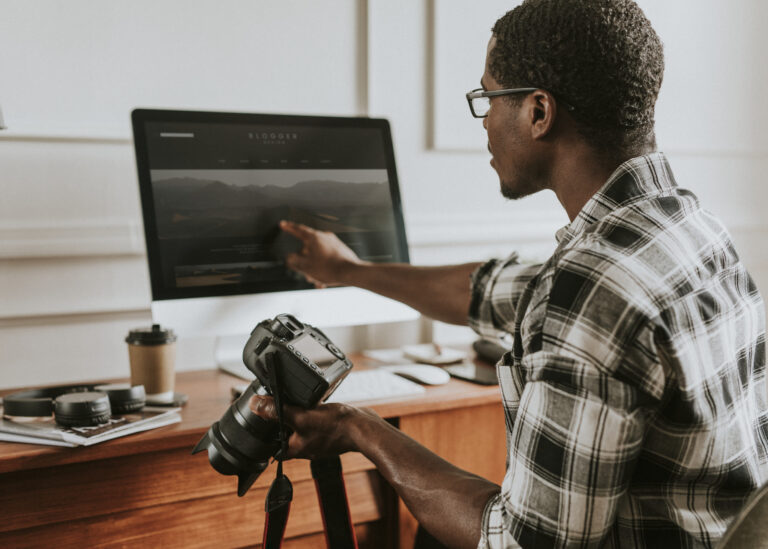
INTRODUCTION
Our recent research revealed that sexual harassment is pervasive in the creative economy — 54% of self-employed and freelance women reported they have been harassed at least once. This is higher than the numbers already reported in the traditional 9-to-5 workforce, where 48% of currently employed women in the United States say they have been sexually harassed. The problem is far too commonplace, but victims are speaking up, empowered by movements like #MeToo, which elevate their collective voice to share unfortunate realities.
The definition of “workplace” has a new meaning. Women in the creative economy, such as photographers, event planners and graphic designers, operate without a formal infrastructure — like an HR team or a supervisor — to regulate workplace behavior and norms. Additionally, their workplaces can be venues at which alcohol is served, making for a more informal and unpredictable environment.
We surveyed more than a thousand of these self-employed creatives to understand and address the ways in which sexual harassment affects the creative economy.
Respondents were provided with the following definition of sexual harassment, as defined by the U.S. Equal Employment Opportunity Commission: “unwelcome sexual advances, requests for sexual favors, and other verbal or physical harassment of a sexual nature. Harassment does not have to be of a sexual nature, however, and can include offensive remarks about a person’s sex. For example, it is illegal to harass a woman by making offensive comments about women in general. Although the law doesn’t prohibit simple teasing, offhand comments, or isolated incidents that are not very serious, harassment is illegal when it is so frequent or severe that it creates a hostile or offensive work environment or when it results in an adverse employment decision.”
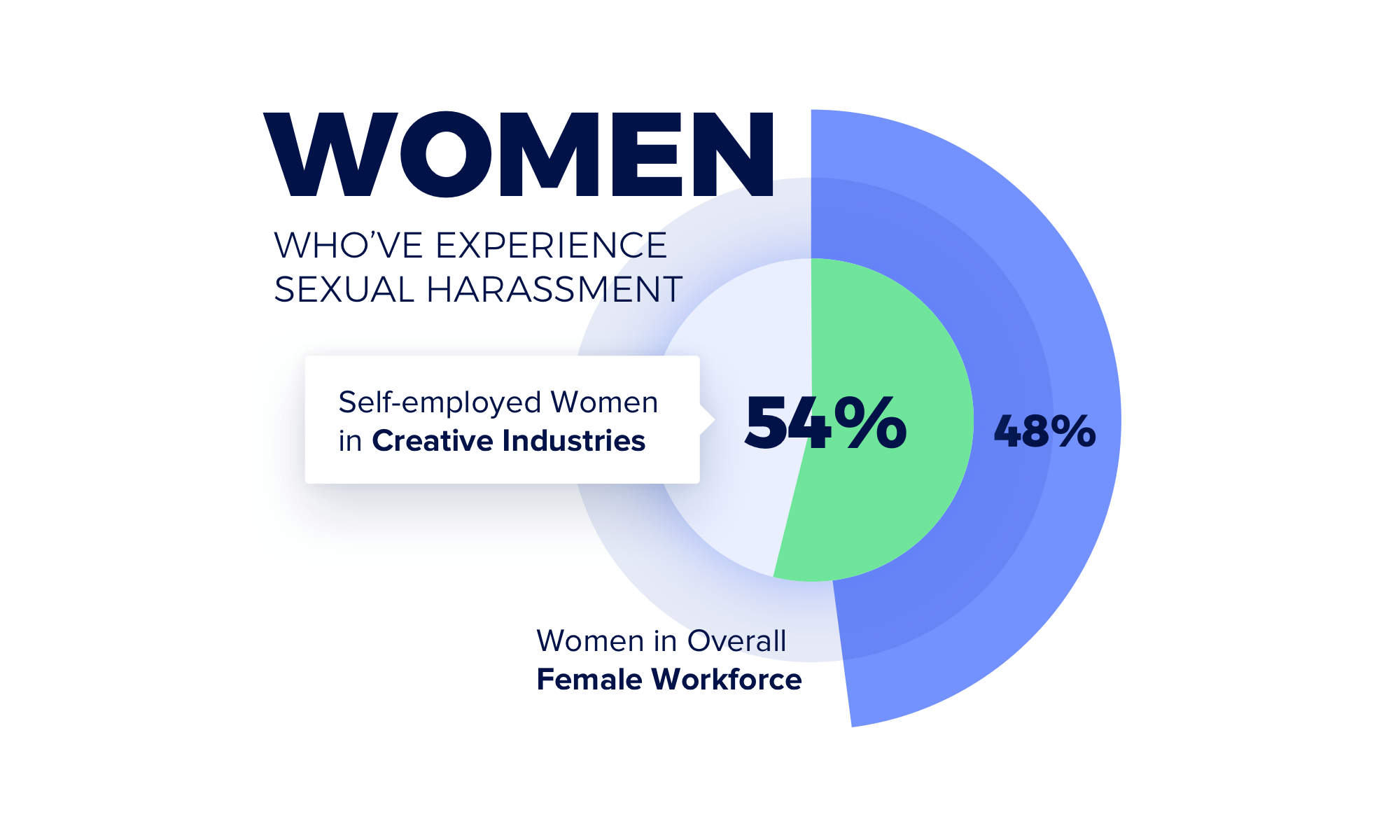
54% of self-employed creatives responded that they’ve experienced sexual harassment. That’s 6% more than women employed in traditional roles. Over 83% of these women did not report the harassment.
In reviewing the results, it begged the questions of what role the lack of formal Human Resource structure plays. Are self-employed more susceptible and vulnerable? How can they protect themselves? What can we do to help?
Sexual Harassment has become part of the job for creative freelancers and self-employed professionals, and we’re here to shed a light on it and start working to change it. We’ve added a sexual harassment clause in every default contract template for HoneyBook members.
Read on to see further findings about how sexual harassment is affecting these creatives.
KEY FINDINGS
HoneyBook surveyed 1,087 self-employed creatives to better understand the incidence of sexual harassment among this community, how they’re affected by sexual harassment, and, more importantly, how to help them. Of those surveyed, 97% were women and the largest group, 33% of respondents, were between the ages of 26 – 30. The survey captured a wide variety of creatives and freelancers with the largest three categories being photographers, event planners and graphic designers.
Of the self-employed creatives HoneyBook surveyed, 54% have been harassed at least once. That’s more than the 48% of currently employed women in the United States who have reported being harassed in the workplace.
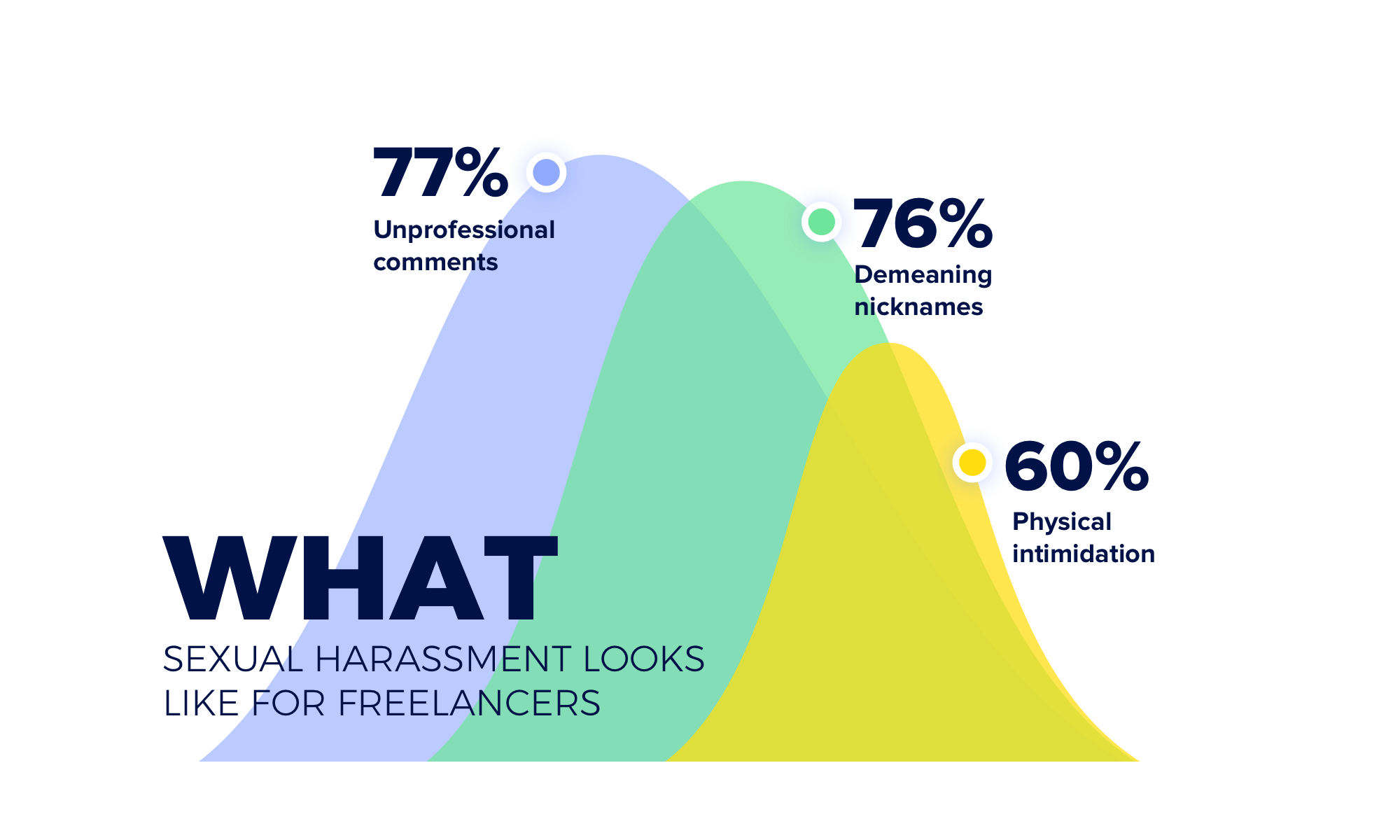
The nature of the harassment varies; HoneyBook’s data paints the picture of what sexual harassment looks like:
- 77% experienced unprofessional comments on appearance
- 76% have been called demeaning nicknames
- 60% have been the victims of physical intimidation
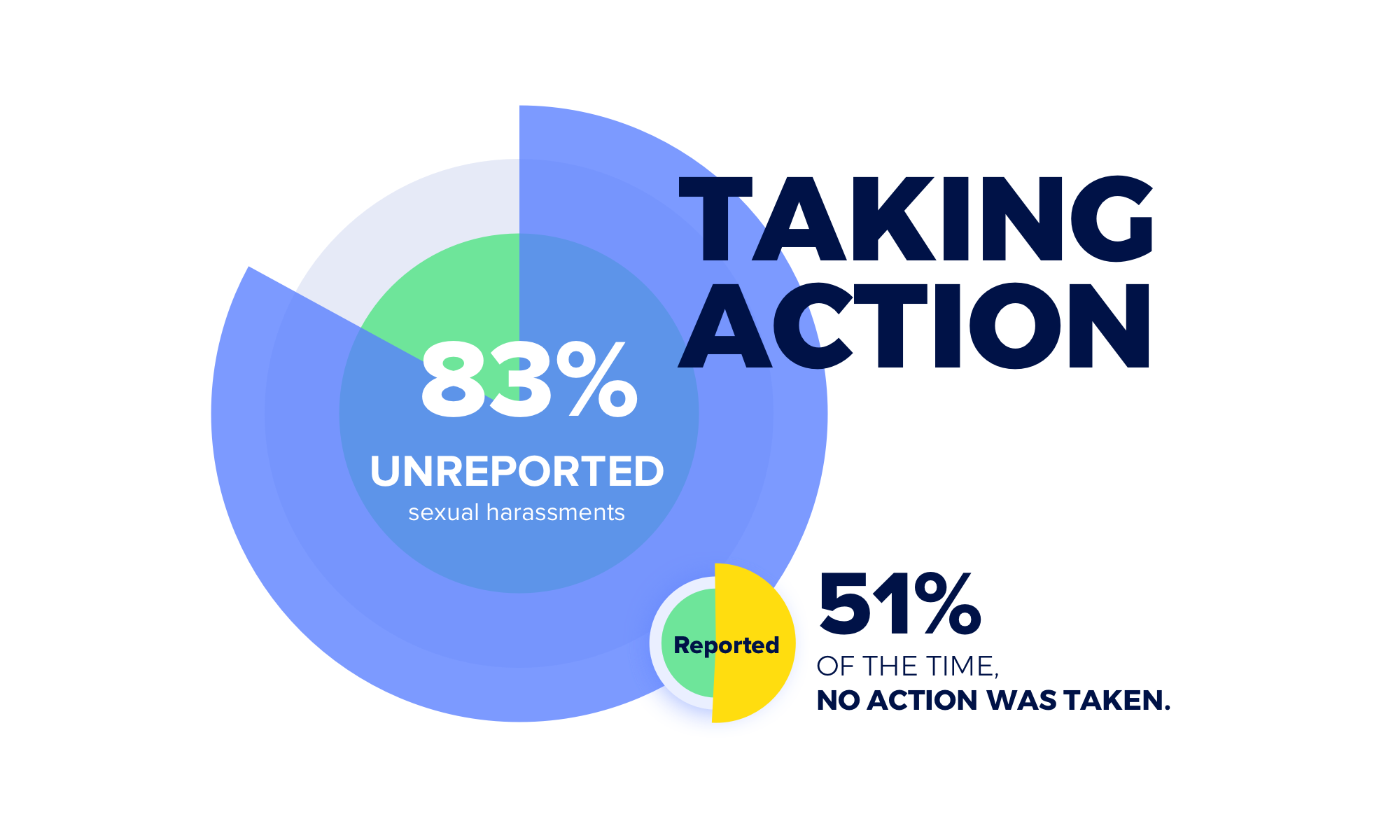
Once an Incident of Sexual Harassment Occurs, to Whom Should Entrepreneurs Report it?
Creative entrepreneurs who work for themselves don’t have have the support of HR departments. They’re in a unique circumstance when it comes to reporting sexual harassment, leading to a high percent of unreported incidents.
- 83% did not report it to anyone
- 51% have had their complaints ignored when reporting to the authorities or someone else
Work environments can also be a factor:
- 65% of respondents were sexually harassed by an attendee of an event at which they were working
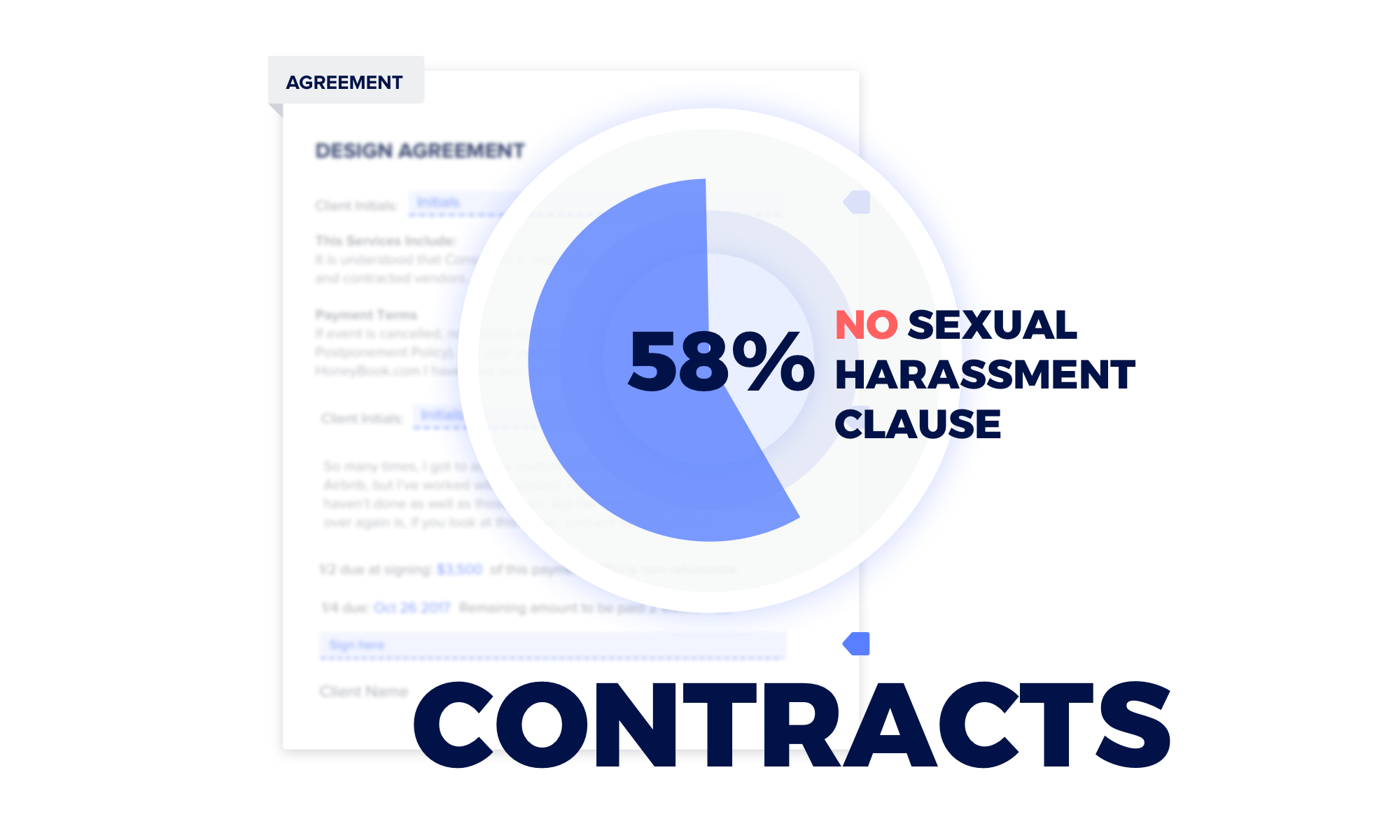
The Lack of Sexual Harassment Reporting May be Linked to the Need to Earn a Living
Unreported harassment (or when reports get ignored) propagates continued incidents.
- 18% have been harassed by the same person/people more than four times
Many view safety as a workplace requirement. But creative entrepreneurs don’t contractually ensure that safety when it comes to sexual harassment.
- 58% of respondents do not have a sexual harassment clause in their contract
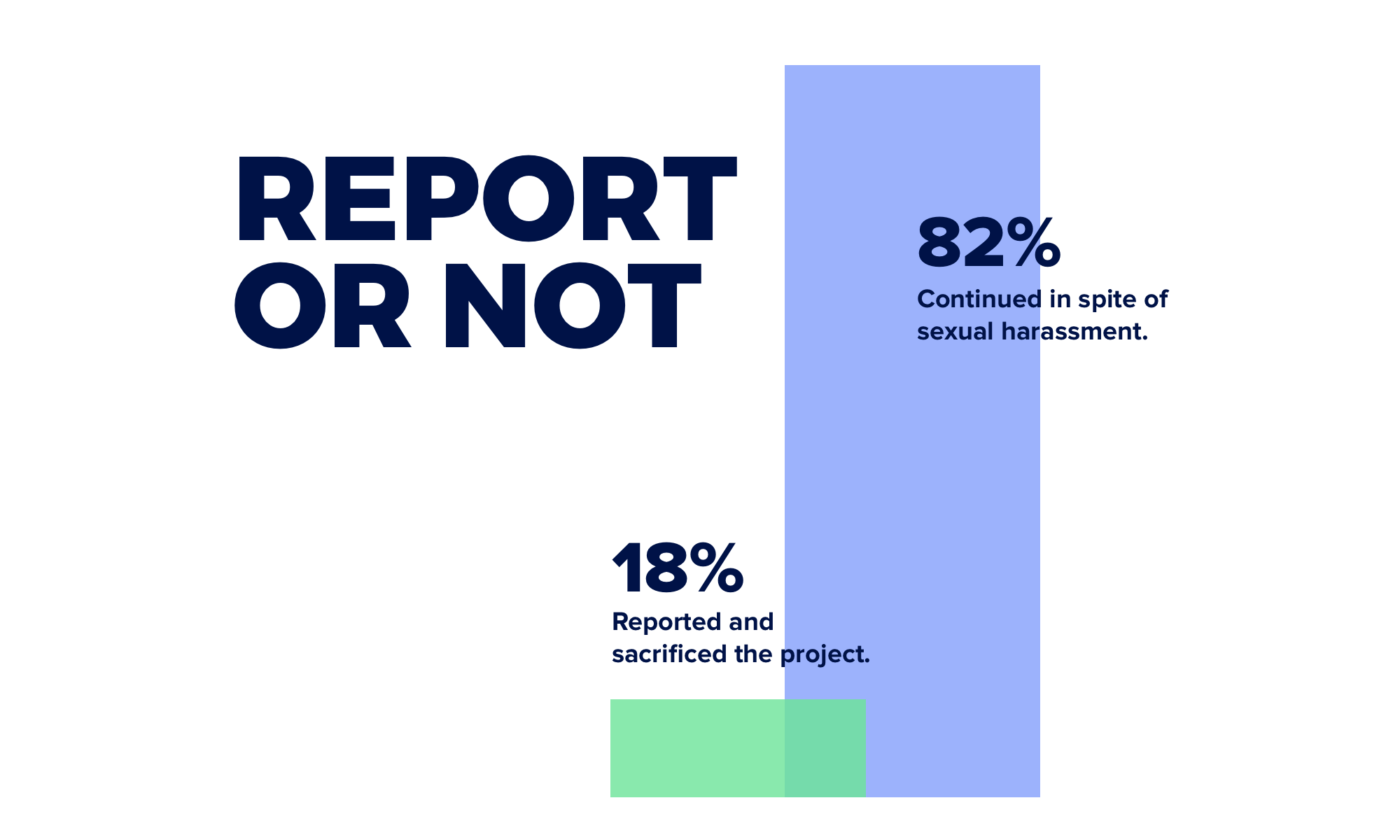
This can leave creative entrepreneurs with a difficult choice: Continue working on the project or gig and earn their desired rate at risk of another instance of harassment or report it and sacrifice the client, rate and possibly, future business.
- 82% of respondents who experienced sexual harassment chose to continue working on the project in spite of being harassed
- 41% kept working in similar environments
- 34% avoided working with the client again because of the experience of sexual harassment
However, data showcases the rates of entrepreneurs can still be honored after leaving as a result of harassment.
- Of the 18% who left a project after experiencing sexual harassment, 48% were still paid
The sexual harassment clause can help increase this number, empowering more women to walk away after being harassed, knowing their rate will be honored.
Here at HoneyBook, we want to equip our community of self-employed creative professionals to understand the circumstances facing this industry, and to help women in the creative economy protect themselves against future sexual harassment.
HERE’S WHAT YOU CAN DO
Include HoneyBook’s Sexual Harassment Clause in Your Contracts
Paige Hulse, an attorney for creatives, suggests: “Contracts are something that should not be retrospective; they should be prepared with foresight to protect as you move forward with your business. As my mentor taught me, contracts are a seatbelt for your business: something you may not appreciate immediately, but that you will be unendingly grateful for when they do their job.”
Setting expectations is the best way to protect yourself. View HoneyBook’s Safe Working Environment clause here, which can help protect self-employed entrepreneurs and freelancers from sexual harassment.
Respond Immediately and Stand Your Ground
Should harassment occur, author of Back Off! How To Confront and Stop Sexual Harassment and Harassers, Martha Langelan suggests:
- Be very direct. Speak honestly (avoid threats, insults, obscenities, or appeasing). Be honest, stern, and blunt.
- Do the unexpected—name the harassing behavior. Whatever has just occurred, say it out loud.
- Hold the harasser accountable for their actions. Don’t make excuses and take charge of the encounter.
- Tell someone about what happened. Privacy protects harassers, but visibility undermines them and provides you with a witness.
- Reinforce your statements with strong body language: eye contact, head up, shoulders back, a strong, serious stance.
When You’re Ready, Reach Out
Reach out. Whether that’s to your team, another vendor or your local community, there are people who will support you. But don’t feel obligated to share your story–that’s something only you know if you’re ready for.
If you encountered a more serious incident of sexual assault, we suggest you report this to the authorities immediately. Also consider reaching out to the National Sexual Assault Hotline at 1-800-656-4673 or chat with them here.
As the voice of the creative economy, HoneyBook is committed to speaking for entrepreneurs in creative fields, and making that collective voice heard. Our new online contract is currently accessible. And we encourage anyone to sign up here or share their stories on Facebook here.
METHODOLOGY
HoneyBook surveyed 1,087 self-employed creatives to better understand how they’re affected by sexual harassment, and, more importantly, how to help them. This survey was administered from December 11 through December 18, 2017. The survey was completely anonymous.



